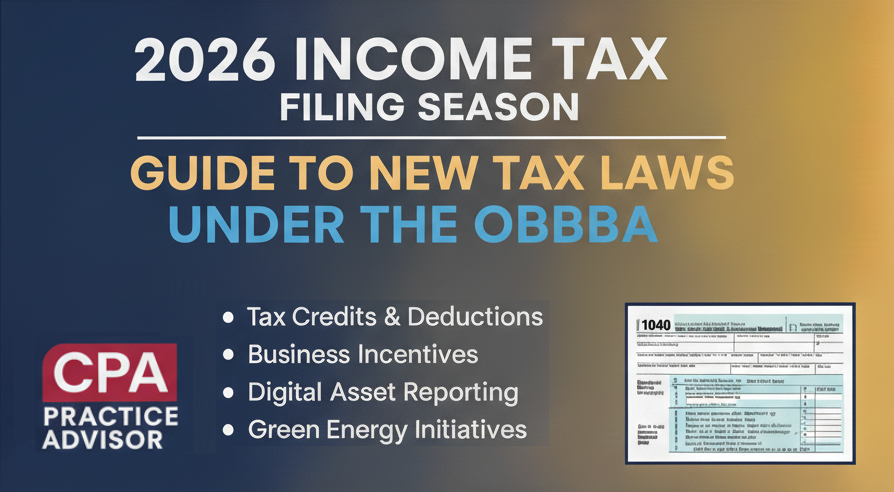All unenrolled preparers must provide a valid PTIN to represent a taxpayer before the IRS. For returns prepared after December 31, 2015, only unenrolled return preparers who have complied with the IRS’ Annual Filing Season Program may represent a taxpayer regarding tax returns prepared and signed by the preparer.
The Annual Filing Season Program is a voluntary program that allows limited practice rights for return preparers who are not attorneys, certified public accountants (CPA) or enrolled agents (EA). Participants in the program must complete a certain number of continuing education hours on an annual basis.
Participants in the program who are not attorneys, CPAs or EAs do not have unlimited rights. Their rights are limited to representing clients whose returns they prepare and sign, but only before revenue agents, customer service agents and the taxpayer advocate service.
Typically, attorneys, CPAs and EAs may represent taxpayers before the IRS and Circular 230 establishes the regulations governing practice before the IRS.
Practice Before the IRS
- The Office of Professional Responsibility is responsible for issues related to practitioner conduct, disciplinary proceedings and sanctions.
- The Return Preparer Office is responsible for matters related to PTINs, applications for enrollment, and administering competency testing and continuing education for certain groups.
- Circular 230 covers the following matters:
o Communications with the IRS on behalf of a taxpayer regarding the taxpayer’s rights and privileges or liabilities under the laws and regulations administered by the IRS
o Representing a taxpayer at conferences, hearings or meetings with the IRS
o Preparing, filing or submitting documents and tax returns with the IRS on behalf of a taxpayer
o Providing a client with written tax advice on a federal matter
Any individual may for compensation 1) prepare or assist with the preparation of a tax return or claim for refund, 2) appear as a witness for the taxpayer before the IRS, or 3) furnish information at the request of the IRS or any of its officers or employees.
Who Can Practice Before the IRS
Any individual who is authorized to practice as a recognized representative must be designated as the taxpayer’s representative and file a written declaration with the IRS stating that he or she is authorized and qualified to represent a particular taxpayer. Form 2848 can be used for this purpose.
The following individuals are subject to Circular 230 Regulations.
- Appraisers: Any individual who prepares appraisals that support the valuation of assets in connection with federal tax matters. They have no representations rights but may appear as a witness on behalf of a taxpayer.
- Attorneys: An attorney who is not under suspension or disbarred from practice before the IRS and is in good standing of the bar of the highest court of a state may practice before the IRS.
- Certified Public Accountants: A CPA who is not under suspension or disbarred from practicing before the IRS and is duly qualified to practice as a CPA in any state may practice before the IRS.
- Enrolled Agents: An EA in active status who is not under suspension or disbarred from practice before the IRS may practice before the IRS.
- Enrolled Retirement Plan Agents: An enrolled retirement plan agent in active status who is not currently under suspension or disbarred from practice before the IRS may practice before the IRS. Enrolled retirement plan agents are limited to the Internal Revenue Code sections relating to employee retirement plans.
- Enrolled Actuaries: An individual who is enrolled as an actuary by the Joint Board for the Enrollment of Actuaries who is not under suspension or disbarred from practice before the IRS may practice before the IRS. The practice of enrolled actuaries is limited to the Internal Revenue Code sections relating to actuaries.
- Low Income Taxpayer Clinic Student Interns: In certain circumstances, a student who is supervised by a practitioner at a law school or equivalent program that provides tax services to low income taxpayers may request authorization to represent a taxpayer before the IRS.
- Unenrolled Return Preparers: An unenrolled return preparer is an individual other than an attorney, CPA, EA, enrolled retirement plan agent or enrolled actuary who prepares and signs a return as the paid preparer or who prepares a return but is not required to sign the return. Unenrolled return preparers may represent taxpayers only before revenue agents, customer service representative and the taxpayer advocate service and only during an examination of the return they prepared and signed prior to December 31, 2015.
Annual Filing Season Program Record of Completion
Beginning January 1, 2016, only unenrolled preparers who hold a record of completion for the tax return year under examination may represent taxpayers before revenue agents, customer service representatives and the taxpayer advocate service for returns they prepared and signed.
Suspension and disbarment
All individuals who practice before the IRS are subject to disciplinary proceedings and may be censured, suspended, disbarred or monetarily penalized for violating any regulation in Circular 230. This includes incompetence and disreputable conduct. Practitioners who are suspended or disbarred are not allowed to represent taxpayers before the IRS during the period of suspension or disbarment. Practitioners may seek reinstatement from the Office of Professional Responsibility at the earlier of the suspension period or after 5 years of disbarment.
Resources
- IRS Publication 547
- Circular 230, Regulations Governing the Practice of Attorneys, Certified Public Accountants, Enrolled Agents, Enrolled Actuaries, and Appraisers before the Internal Revenue Service
Thanks for reading CPA Practice Advisor!
Subscribe Already registered? Log In
Need more information? Read the FAQs
Tags: Income Taxes, IRS, Software, Taxes




![natural_disasters_list_1_.56117a5e5df03[1]](https://www.cpapracticeadvisor.com/wp-content/uploads/2021/12/natural_disasters_list_1_.56117a5e5df03_1_.61c1db14bf0ea.png)